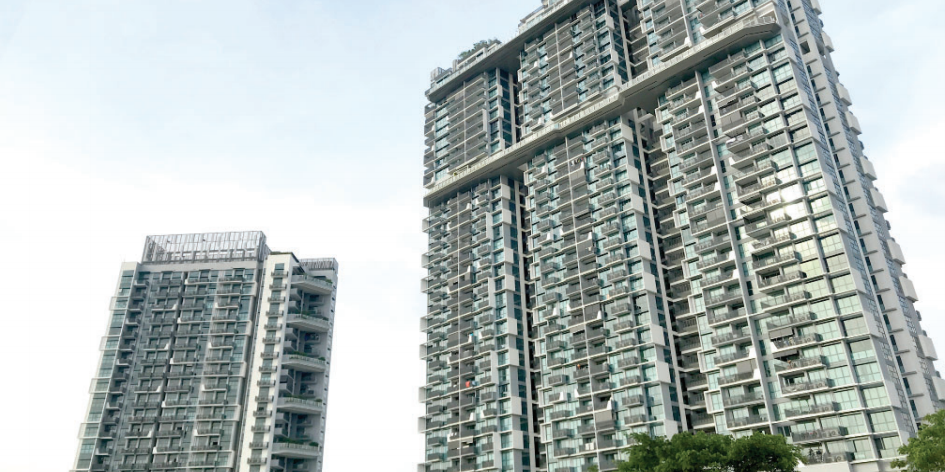
Singapore's rental market weakens as expat demand dwindles
The number of Singapore non-residents dropped 0.1% to 1.64 million in June as global economic views sour.
Despite Singapore’s continued enthusiasm towards welcoming expats, the sudden turn in global economic optimism has shifted general business sentiment. This was seen in the protracted decline in the number of nonresidents in Singapore which dropped 0.1% to 1.64 million in June, following a yearly drop of 1.6% in 2017.
Whilst HSBC’s annual Expat Explorer Survey in October showed that Singapore has remained the best country for expatriates to live and work for four consecutive years since 2015, expatriate housing packages have been shrinking in recent years. This has put some downward pressures on further rental growth, according to Savills Singapore.
Savills Singapore senior director Alan Cheong said in a research note, “If one believes this conventional wisdom, then demand from overseas nationals for housing in Singapore should decline so long as decision makers in multinational companies continue to hold such pessimistic views. For market observers who are marrying the negative macro picture to the 9,100 units of private residential properties expected to be completed in 2019, the rental market will be soft next year.”
However, rising rental demand from both citizens and permanent residents, including displaced owners and tenants from en bloc sales projects, could help offset the softening expat demand. “The revised Additional Buyer’s Stamp Duty (ABSD) rate implemented on 6 July has motivated potential buyers to adopt a ‘wait-and-see’ approach to reacquiring properties and turn to leasing instead,” said Cheong.
In Q3, island-wide leasing volume rose 13.5% QoQ with 25,6571 transactions recorded in the quarter. Amongst these, 1,911 landed homes were rented, up 33.4% QoQ, whilst for condominiums and private apartments, leasing transactions increased 12.2% QoQ to 23,746.
Urban Redevelopment Authority (URA) data showed that Commonwealth Towers at Commonwealth Avenue saw the highest leasing volume of 205 transactions in the quarter. This was followed by well-known projects popular with tenants, including The Sail @ Marina Bay, D’Leedon at Leedon Heights, City Square Residences at Kitchener Link, and Reflections At Keppel Bay, which contributed 158, 151, 138, and 128 deals, respectively.
Other projects, completed from 4Q2017 to 2Q2018 and with easy accessibility to the Mass Rapid Transit, also enjoyed high leasing volume, according to Savills. These included Sophia Hill at Mount Sophia, Highline Residences at Kim Tian Road, Coco Palms at Pasir Ris Grove, and Marina One Residences at Marina Bay.
A notable leasing record was that of Coco Palms with 204 deals, or 21.6% of its total 944 units. “For a mass market project that was considered mainly for owner-occupied purposes, this percentage is higher than expected and is predicted to rise further in the coming few quarters as more units are progressively rented out,” Cheong commented.
URA’s rental index of all private residential properties registered a modest QoQ gain of 0.3% in Q3. This is slower than the 1% growth recorded in the previous quarter. Rental growth for both landed homes and non-landed units moderated from a quarter ago to 0.5% QoQ and 0.3% QoQ, respectively.
Savills’ basket also revealed that the average monthly rent of high end, non-landed residential properties continued its upward trend in Q3, albeit at a lower rate of 0.3% QoQ, and stood at $4.13 psf.
Meanwhile, the supply of newly-completed private homes remained low. In Q3, only 1,088 new units were added to the stock of completed houses. Most of the new projects are in the Rest of Central Region (RCR), such as Thomson Impressions at Lorong Puntong (288 units), TRE Residences at Geylang East Avenue 1 (250 units), and Kallang Riverside at Kampong Bugis (212 units).
As of end September, the vacancy rate for island-wide private residential properties slid to 6.8% from 7.1% in the previous quarter and 8.4% in 3Q2017, a level not seen since 2Q2014. Compared with the previous quarter, the vacant stock of landed houses and non-landed units fell by 0.8% and 4.2%, respectively.
In total, 25,105 private homes were unoccupied as of end Q3, the fourth successive quarter of decline. “A further easing of vacant stock is expected in the near term, supported by limited new completions and the withdrawal of units from collective sales sites done since the second half of 2016,” Cheong said.
However, owners who have been displaced by their own collective sales are now facing difficulties in finding units similar in size to the large flats they previously owned, since newer developments consist mainly of relatively small units, such as one- and two-bedders, the firm added.
“Therefore, the market has become a landlords’ market due to a lack of suitably-sized stock,” Savills Singapore said. “This situation in part supports our view that rents will continue to firm up in the next few quarters.”
The company projected that rents for private condos to remain bound to increases of 1% to 3% for 2019.
























 Advertise
Advertise










